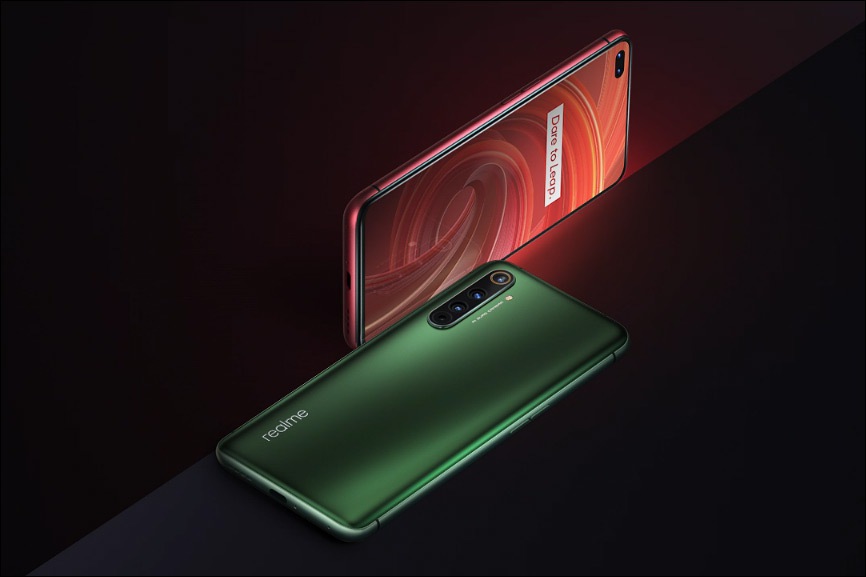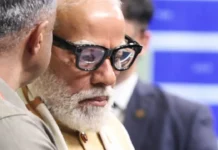NEW DELHI: With the government allowing the sale of mobile phones and other consumer electronics items on e-commerce platforms like Amazon and Flipkart from April 20, leading smartphone manufacturers like Realme, OPPO and Vivo on Thursday welcomed the move, saying they are closely assessing the situation with their stakeholders.
As restrictions on certain economic activities will be lifted to some extent starting April 20, e-commerce majors would be able to sell mobile phones and electronic items, including refrigerators, televisions, air conditioners, coolers along with stationery items, according to the officials from the Ministry of Home Affairs.
The relaxations are currently allowed in areas which are not hotspots for coronavirus cases. Madhav Sheth, Vice President, Realme and CEO, Realme India, told IANS that they have held discussions with Flipkart, which is their strategic partner, to make devices available for sale from April 20.
“With respect to reopening our manufacturing plant, we’re in discussions with our teams in the factory to understand if they would be able to open. It’s not just our factory, but also several ancillary factories that will need to come online for us to restart manufacturing,” Sheth informed.
Smartphone players are still unable to gauge the full impact of lockdowns and global recession as there is going to be a sharp contraction amid low consumer sentiments in the country.
“We welcome the new guidelines by Ministry of Home Affairs around the sale of electronic devices on e-commerce platforms post-April 20. At OPPO, we are assessing the current situation along with our partners and will share an update once we have clarity,” informed an OPPO India spokesperson.
The smartphone production in India was set to decrease by nearly 30 per cent for the month of March. With the lockdown now gobbling up nearly the entire month of April, the impact is only going to get worse.
The India Cellular and Electronics Association (ICEA) said late last month the mobile phone industry is looking at Rs 15,000 crore loss, which is only going to get bigger owing to zero sales in April to date.
Vivo India said they are in conversations with their stakeholders about the new relaxation norms post-April 20. “We are evaluating the situation continuously, keeping the wellbeing of our employees and our partners as priority,” said a company spokesperson.
Manish Sharma, President and CEO, Panasonic India & South Asia, told IANS that this is the best chance of helping them combat the current crises. “As our factory in Jhajhar, Haryana is in the green zone, we are hoping to get the permission to start manufacturing soon. The summer is here and while we have enough inventories of ACs and refrigerators to meet the consumer demands, we would like to start operations to ensure sustainability over a longer term,” explained Sharma.
Honor India welcomed the ministry’s decision to allow smartphones sale on e-commerce platforms. “We did not increase the price of our top smartphone models even after the GST hike and extended the warranty period till June 30 for all HONOR phones, wearables, headsets and accessories whose warranties expire between March 21 and June 21,” said the company.
The COVID-19 lockdown has forced consumer electronics players to postpone new launches for an indefinite period as online ecommerce players have prioritized their operations and services keeping the essential items in mind. Flipkart said that as a marketplace e-commerce player, it is their responsibility “to enable sellers and the MSME community to bounce back and responsibly facilitate economic activity.
“We are working with lakhs of sellers, small businesses and artisans across India and helping them prepare their business and workforce to make products available for consumers in this time of need as they continue to stay indoors,” said a company spokesperson. Snapdeal said that in accordance with the MHA guidelines, the company is preparing to scale up operations to meet the requirements of its users – both buyers and sellers.
“Summer apparel, kitchen accessories, small appliances like headsets, tablets for school work, home printers, competitive exam books, etc will be in high demand,” said a company spokesperson.







